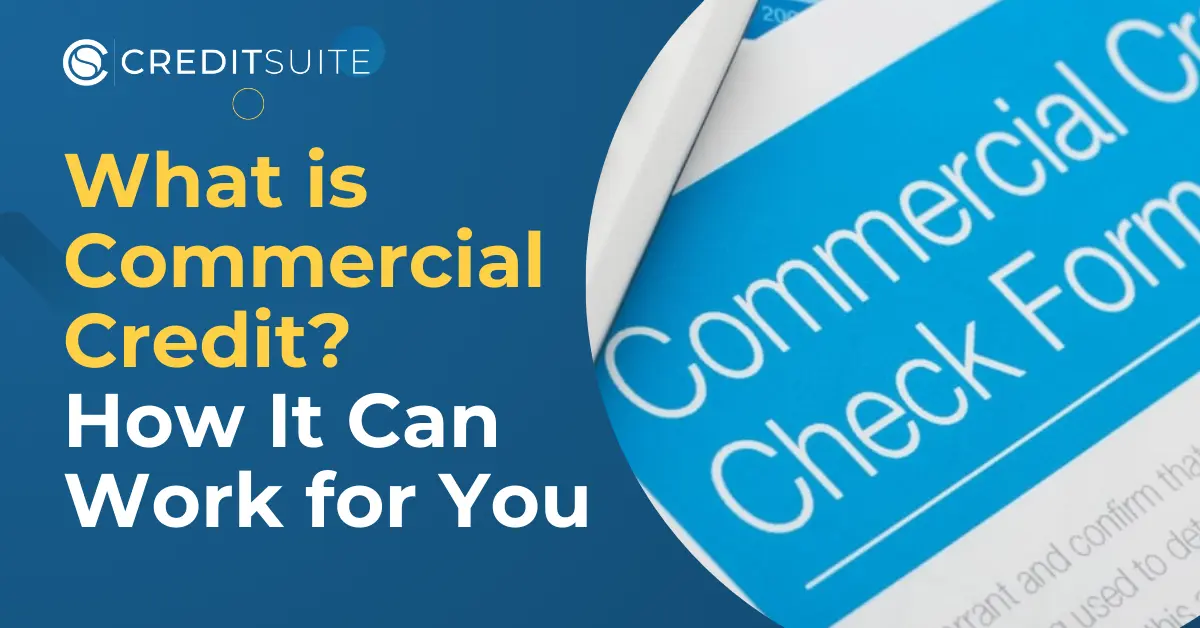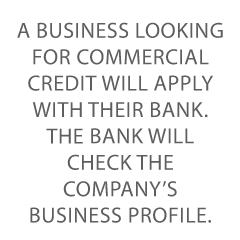In a Nutshell
Does your business need a cash infusion to cover regular daily expenses? Then commercial credit just might be what you need.
Commercial credit can help business owners affordably finance equipment, inventory, meet working capital needs, and cover capital expenditures, and so much more!
What is Commercial Credit?
According to Investopedia, commercial credit is a pre-approved amount of money issued by a bank to a business. The business can then access the money at any time to satisfy its financial obligations.
In general, commercial credit is used to finance day to day operations. Once the money is available, it is paid back by the borrowing company.
It can often be offered as a revolving line of credit. But it can also be called a commercial line of credit or a small business line of credit. It works a lot like a commercial credit card.
A business is only charged interest on the amount being used, until it is paid back. Hence, if a business has a commercial credit line of $100,000 and is only using $2,000 of it, then any accrued interest would only be on the $2,000.
Commercial credit can be secured by collateral. Collateral can include bigger ticket items like real estate.
But it isn’t always secured. Unsecured commercial credit applications are subject to much stricter scrutiny. This is because a banking or other financial institution is taking on more risk.
Qualifying means working with a bank, which would evaluate a company’s business profile.
How Does it Work?
A business looking for commercial credit will apply with their bank. The bank will check the company’s business profile.
For an unsecured commercial line of credit, the business will undergo much stricter scrutiny. This is because unsecured financing is more of a credit risk to lenders. Whereas for a secured commercial lending solution, the lender will check on the value of the collateral on offer.
For revolving credit, the business can withdraw anything up to the limit. As the money is paid back, it becomes available to the business again. Non-revolving is more like a business bank account in that it is for a finite amount of money.
Therefore, once this financing is gone, it’s gone.
Since the business does not have to specify fund usage, this financing is for all business needs. There is no need to be sure merchant services count as a qualifying purchase.
So, while it works a lot like a purchasing card, commercial credit has no annual fee. You cannot earn reward points with this financing option; it has no rewards. It’s not like a business credit card for balance transfers.
Commercial credit is financing that is best for when cash flow is not enough for a business expense.
Types of Commercial Credit
Commercial credit in the form of a revolving line of credit can be secured or unsecured financing.
Secured commercial credit means the business has offered collateral to secure the financing. Because a lender can seize the collateral if the business defaults, a secured business line of credit is easier to get.
Unsecured commercial credit is not backed by collateral. Since the lender must take on greater risk, unsecured commercial credit is often for higher interest rates and lower amounts. It will also be the subject of more intense scrutiny prior to approval.
The lender wants to be sure the small business pays any commercial loan back.
Non-revolving commercial lines of credit also exist. With a non-revolving line of credit, there is a stated limi. This capital can be used for various purposes.
Unlike with a revolving line of credit, the pool of available credit does not replenish after payments are made. When you use a non-revolving line of credit and pay it off in full, the account is closed and can no longer be used.
With commercial credit, the money does not have to have a specific, stated purpose. This makes it more flexible than a term loan or SBA loan.
An Example of Commercial Credit
Let’s say a business has to buy a large piece of equipment. And there is a significant and qualitative difference in price if it is bought sooner versus later.
Or, a larger down payment could reduce overall costs or even the rate of interest to be paid. But either way, the need is an immediate one.
For a business which does not have the cash on hand, the purchase is a pipe dream. And if it’s possible at all, it will end up costing the company a lot more than it should.
A variation on this hypothetical is a seasonal business looking to upgrade during the slow season. An inability to immediately buy it, or to put enough down, raises this cost.
In both scenarios, paying too much for equipment can put other expenditures out of reach. An inability to meet the salary demands of a changing jobs market, or cover a rent increase directly affects business survival.
But with commercial credit, it does not have to be that way.
With financing, businesses can use it to buy the equipment before a competitor outbids them—or they can offer a larger down payment and cut future interest charges.
Strategies to Get Commercial Credit
Keep an eye on your commercial credit report. Make sure your scores are going up, and the report is as free of errors as possible. Generally, the best way to do this is through monitoring.
Credit Suite offers monitoring for Dun & Bradstreet, Equifax, and Experian business credit for over 90% less than it would cost you a la carte.
Pay attention to personal credit as well. Experian uses it in their business credit calculations, and many lenders consider it as well. If your personal credit is substandard, consider working with a guarantor with a good credit history—and include them on the financing application.
For both forms of credit, public records may loom large. Bankruptcies, court cases, and liens can all affect credit approval for financing. Again, a guarantor can come to your rescue.
Consider collateral you can offer for financing. A secured line is far easier to get than an unsecured one, and you will likely enjoy better rates and terms.
Make sure your relationship with your bank is good. This is whether it’s online banking or brick and mortar. Keep decent balances and avoid NSFs. If your commercial banking is well managed, a lender will be much more likely to say “yes”.


